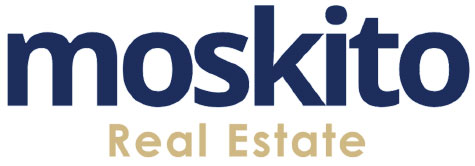Buying Real Estate in Mexico

Information about the Mexican Real Estate Industry
Land title and registry
Mexico has a safe and well developed title registration system which is commended and administered by a Public Registry of Property located in each State. This Public Registry is the institution that the government uses to grant publicity to all legal acts that in accordance with the Law must have legal effects against third parties.
In addition, the Registry System is integrated by:
a) Real Estate Registry,
b) Furniture Registry, and
c) Legal Entities Registry.
Once a Real Estate, Furniture or Entity is recorded, the Registry will issue a number that will identify and follow the Real Estate Furniture and Entity for as long it exists or is modified.
Property taxes
Local governments, called Municipalities, charge property and municipal taxes. The first is calculated on the Classification of the Property and Constructions. Property tax is typically due every two months; nevertheless it can be paid off for a full year in advance and obtaining a small discount.
Municipal taxes such as Cooperation of State and Municipality Public Labors, are paid only at the conveyance of property. The applicable amount varies by Municipality, and is used to compensate for the services each Municipality provides to its citizens.
Transfer procedures and costs
Property transfers are quite simple and safe, this will require the participation of a Mexican Notary Public, who is a government official and whose services are required for the transfer of real estate. The Notary Public performs a title search at the Public Registry in order to determine the status of the property, including any circumstance which limits or prevents the transfer. The transfer performed before the Notary, will be recorded in an official book called the protocolo. A copy of the deed, called a testimonio, is subsequently filed before the Public Registry, assessed and recorded. Once the deed is recorded the Notary Public will take note of the Registry stamp and provide the testimonio to the Purchaser.
In regards to Closing Costs, the Notary Public must calculate, retain and pay the corresponding transfer taxes and costs beforehand. The transfer tax is around 2% of the higher amount between the declared value of the transaction, the value currently registered for that property (Cadastral Value) and the appraisal duly issued by an authorized agent. Professional fees for the Notary Public could start at .5% and will vary depending on the sale price. In addition, certain fees have to be paid, such as: Bank Fees in case of the creation of a Trust, obtainment of documents, appraisal agent fees (In Mexico, every time there is conveyance of property, an appraisal has to be issued. An appraisal is valid for a period of six months) permits, among others. Therefore the approximate closing costs in a conveyance of property would be from 4% to 8% of the Purchase Price.
It’s important to mention that, it’s established by the Civil Code that the person entitled to pay all the fees in regards to conveyance of property is the Purchaser, except for Capital Gains which the seller has to pay.
Unless the seller is personally financing the transaction, it is customary for the buyer to retain the Notary Public of its choice. If the transaction is financed by a bank or similar institution, the closing is performed by its own Notaries irrespective of the seller and buyer.
Physical land titles or certificates do not exist under the Mexican legal system. Therefore, even though ownership changes immediately upon signing a transfer deed before a Notary Public, effects of this transfer for third parties occur only upon recording at the Public Registry. When a transfer deed is filed, the Public Registry performs an annotation on the affected property, so others are aware the transfer is pending. Once the transfer is finalized, the appropriate information is changed and updated to show the current status of the property and the title owner.
The average turn-around period for documents filed at the Public Registry is from 2 to 6 months.
Who may own property?
Its important to take into account that, The Constitution of Mexico establishes that only Mexican’s by birth or naturalization and Mexican corporations have the right to purchase property. Nevertheless the State can grant the same right to Foreigners providing they agree before the Ministry of Foreign Affairs to consider them selves as Mexican nationals with respect to the property purchased and not to invoke protection from there government, under the penalty to lose in favor of the nation the property acquired.
In addition, the Constitution of Mexico establishes restrictions of ownership by Foreigners in Border and Coastal properties, 100 kilometers a long the Borders and 50 Kilometers a long coasts, such boundaries are called “Restricted Zone,” where no foreigner can acquire property directly. Therefore and in accordance with the Foreign Investment Law, it is required for foreigners to acquire property through a trust created by a Mexican Bank, this would translate to a real estate trust. This type of trust is similar to trusts set up in the United States, but a Mexican bank must be designated as the trustee and, as such, has title to the property and is the owner of record. The Mexican Government created the “fideicomiso” to reconcile the problems involved in developing the restricted zone and to attract foreign capital. This enabled foreigners, as beneficiaries of the trusts, to enjoy unrestricted use of land located in the restricted zone without violating the law.
Such trust has a period of 50 years and can be extended for the same period.
Mortgages
 Documents necessary to set up
Documents necessary to set up
Like property transfers, to set up a mortgage against a property requires a Notary Public to draft the respective deed. The transaction may be documented by a loan agreement executed between the parties, but it is customary that this agreement is part of the Notary deed, which includes all the loan terms and conditions and collateral guarantees.
Mexican law provides for several degrees of mortgages, whereby a particular property may secure several different obligations, for the same or different lenders. The first mortgage recorded against the property takes priority over the rest, and so on. Therefore, as is the case before any transfer, the lender performs a background check of the property at the Public Registry, to determine any encumbrances that may affect the collateral.
Procedure and costs
A mortgage may be set up together with the property transfer, regardless of whether the seller or a third party is financing all or part of the purchase, or separately if the borrower already owns the property offered as collateral. The Notary Public prepares the necessary deed and paperwork, and the parties sign the deed. A copy of the deed is filed before the Public Registry, assessed and recorded.
As in every other case, the testimonio must pay the necessary taxes and costs before filing, such as mentioned in 5.3 above, and in addition the borrower must pay around 1% of the loan amount in order for the lean over the property be recorded in the Public Registry.
Cancellation of a mortgage
Once the full loan amount is paid off, including any applicable interest, cancellation of a mortgage requires the participation of a Notary Public to draft the necessary deed and subsequently file and record it at the Public Registry.



